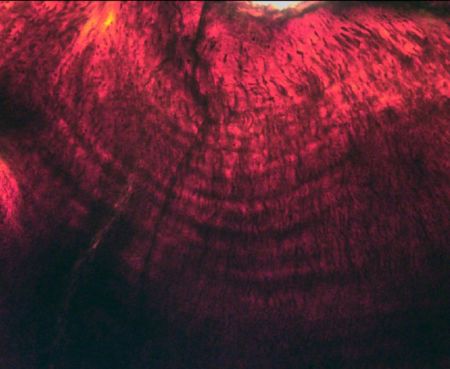Did Dinosaurs Go Extinct because of Their Slow-Hatching Eggs?

The asteroid which struck Earth during the final stages of the Cretaceous period heralded the dawn of a new era -- one where the planet was devoid of dinosaurs.
Scientists have never been able to precisely state why the collision resulted in the extinction of all dinosaur species when their avian counterparts and a few reptilian brethren survived and evolved into the animal species that populate the planet today. But now, new findings about how long their eggs took to hatch might shine a light on the reason behind the dinosaurs' extinction.
Eggs-tracting the Evidence
By researching rare fossilized dinosaur embryos, scientists concluded that dinosaur eggs took at least twice as long to hatch as compared to bird eggs of similar size, reports the New York Times.
The team of researches examined two eggs for their study: the first a half-pound egg laid by Protoceratops andrewsi, a four-on-the-floor herbivore that was about the size of a large dog, and the second a 9-pound egg laid by a 30-foot-long non-avian dinosaur called Hypacrosaurus, a close relative of crocodiles and other similar reptiles.
They subjected the eggs to CT scans and discovered von Ebner lines (growth lines) in the embryo's teeth. This has never been done before and it revealed to the researchers that the egg belonging to the duck-billed Hypacrosaurus would take around six months to hatch (an ostrich's egg hatches after 42 days), stated their study published January 2 in the journal Proceedings of the National Academy of Sciences,
The Incubation Dilemma
Until now, scientists had always considered dinosaur eggs to have had the same incubation period as those of modern-day birds, which are the only direct descendents of the giant creatures today.
This new revelation, however, provides insight on why the dinosaurs were made extinct by the asteroid strike 66 million years ago when so many other species survived.
Longer incubation periods result in delayed reproduction -- a critical issue for the creatures as they competed for sparse resources in the post-extinction event world against far more efficient amphibians, reptiles, birds, and mammals. It also increased the risk of predation and death due to natural disasters, both for the embryo and its parents, by a significant amount.
Apart from long incubation periods, dinosaurs were also handicapped by the fact that they expended more energy than comparably sized reptiles or amphibians, putting a limit on their competitiveness.
"These animals were profligate wasters of energy. They were big and warmblooded and even the smallest dinosaurs took over a year to mature," said Dr. Gregory M. Erickson of Florida State University, lead researcher of the study. "The dinosaurs found themselves holding some bad cards. They had a dead man's hand."





















